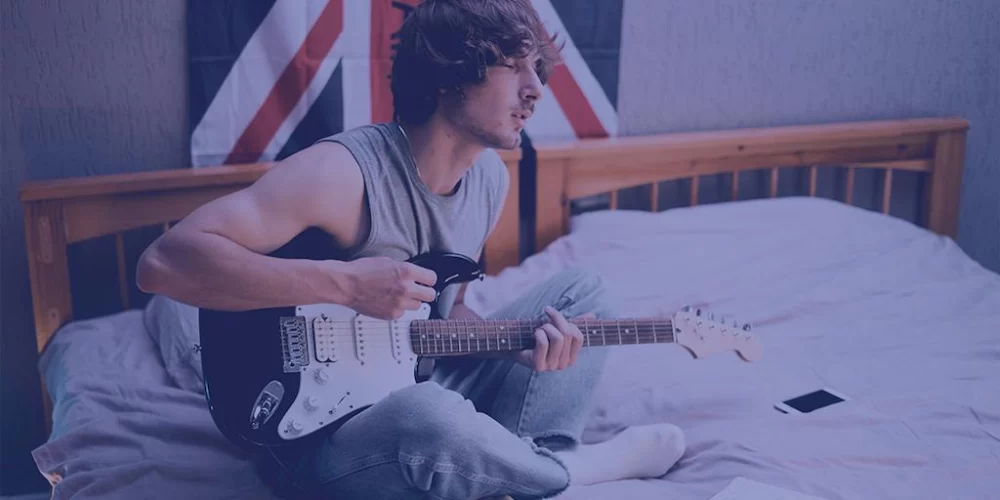
Protecting Your Music: A Guide to Intellectual Property for Musicians
As a musician, your music is more than just a creative expression—it's your intellectual property. Every song, every note, and every lyric you write has the potential to bring in revenue, gain recognition, and most importantly, represent your unique voice. But how do you ensure that your hard work isn’t taken advantage of? In this guide, I’ll share everything I’ve learned about protecting your music and intellectual property (IP) as an artist. From understanding copyrights to licensing deals, you’ll learn how to safeguard your rights in the competitive music industry.
1. Understanding Copyright: The First Step in Protecting Your Music
The foundation of intellectual property protection for any musician is copyright. Copyright grants you exclusive rights to your original work, which means that no one else can use, copy, or distribute your music without your permission. As soon as you create a piece of music, whether it’s a melody, a lyric, or a full production, it is automatically copyrighted under U.S. law. But there’s more to it than just claiming ownership. You need to understand how to register your copyright and the benefits that come with it.
In my early days as a musician, I didn’t realize how important it was to officially register my music with the U.S. Copyright Office. Sure, I knew that my work was protected, but registering my music gave me a legal record of ownership. This became invaluable when I needed to defend my rights in cases of infringement. If you want to avoid costly disputes, I highly recommend registering your music as soon as possible. The process is straightforward, and it ensures that you have proof of ownership if you ever need to take legal action.
2. What Does Copyright Protect, and What Doesn’t?
One of the most common questions I get asked is, “What exactly is protected under copyright?” It’s essential to understand the scope of protection copyright offers. For musicians, copyright protects the specific expression of your music, including:
- Your melody and lyrics
- The arrangement and composition of your music
- Original recordings of your music
However, copyright does not protect the idea behind the music or the genre itself. For instance, you can’t copyright the concept of a love song or the general structure of a pop song. Copyright is about protecting the creative work itself, not broad concepts.
3. Licensing Your Music: A Crucial Step in Earning Revenue
Once your music is protected by copyright, you can start thinking about licensing your work. Licensing allows others to use your music for various purposes—whether it's for a commercial, film, TV show, video game, or even as part of a sample for another song. Licensing deals are an essential revenue stream for many musicians, and they provide exposure in new spaces.
In my own experience, licensing has been one of the most rewarding ways to monetize my music. I’ve had songs placed in commercials and television shows, and each time, I receive royalties. If you’re interested in licensing your music, I recommend working with a music library or a licensing agency that can connect you with opportunities. Just make sure that you read the fine print of any contract and understand how royalties will be paid out.
4. Trademarks: Protecting Your Artist Name and Branding
While copyright protects your music, trademarks are another tool you can use to safeguard your identity as an artist. A trademark can protect your stage name, logo, or other branding elements that are closely tied to your music career. Having a trademark ensures that no one can use your name or logo without your permission, which is vital as your career grows.
In the early days of my career, I didn’t think much about trademarking my stage name. However, as my fan base grew, I realized that someone else had started using a very similar name, which caused confusion. I quickly trademarked my name and logo to avoid potential conflicts. Having a trademark gives you legal recourse if someone infringes upon your brand, and it helps you stand out in the crowded music industry.
5. Music Publishing: How to Protect Your Songwriting and Earnings
Another way to protect your intellectual property is through music publishing. As a songwriter, you have the right to receive royalties every time your music is used, whether it’s performed live, played on the radio, or streamed online. To ensure that you get paid for your work, you need to register your songs with a music publishing company or a performing rights organization (PRO) like ASCAP, BMI, or SESAC.
When I started working with a PRO, it was like a light bulb went off. I had no idea how many opportunities there were to earn royalties from my music! PROs collect royalties on behalf of songwriters and composers, ensuring that you’re compensated for public performances of your music. This is especially important if you’re trying to earn a living from your songwriting. Without a PRO, it’s easy to miss out on opportunities to earn money from your music.
6. Digital Distribution: Keeping Your Music Safe Online
In today’s digital age, most of your music’s exposure and revenue will likely come from online platforms. Whether you’re distributing your music through streaming services like Spotify or Apple Music, or selling it on digital stores like iTunes or Bandcamp, it’s essential to keep your intellectual property safe online. One way to do this is by using a reputable digital distributor.
When I started releasing music online, I used a distribution service that handled everything from copyright registration to royalty collection. This service ensured that my music was protected and that I received royalties from streams and downloads. It’s also important to monitor your music regularly on platforms to ensure that it’s not being used without your permission. Setting up alerts for any unauthorized uploads can help you take action if your music is being stolen or misused.
7. The Importance of Contracts and Legal Protection
As a musician, you’ll encounter various contracts throughout your career—whether it’s with a record label, a producer, a venue, or a collaborator. Contracts are a vital part of protecting your intellectual property, as they define your rights and responsibilities in any agreement. Without a clear, written contract, it’s easy to get taken advantage of.
In my own experience, I’ve had to sign contracts for everything from licensing deals to collaborations with other artists. At first, I didn’t fully understand the terms, which almost led to some confusing situations. That’s when I realized how crucial it was to have a good entertainment lawyer who could review contracts and make sure my intellectual property was protected.
8. Taking Action Against Infringement
Despite all of your efforts to protect your music, there’s always a chance that someone might infringe on your intellectual property. If you discover that someone has used your music without permission, you need to take action quickly. The first step is often sending a cease and desist letter, demanding that the infringer stop using your work.
If the issue isn’t resolved with a cease and desist letter, you may need to pursue legal action. This can be costly, but if your intellectual property is being misused, it’s important to stand up for your rights. Having a registered copyright and proper documentation will make the process easier and more efficient.
Protecting your music is a crucial part of building a sustainable career as a musician. By understanding the basics of intellectual property, copyright, and contracts, you’ll be better equipped to safeguard your work and ensure that you get paid for your creativity. Take the time to learn about these protections, and don’t hesitate to seek legal advice when needed. Your music deserves to be protected, and with the right steps, you can keep your creative work safe.








